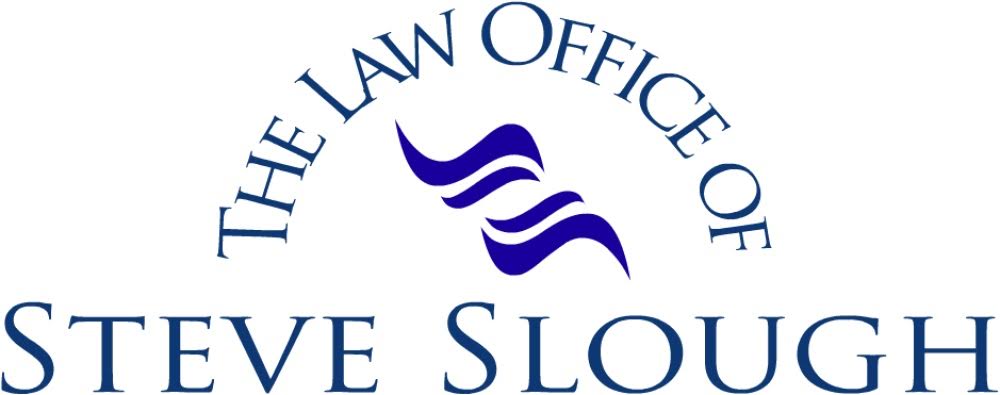If you suspect that your loved one isn’t receiving proper care in a nursing home or care home facility, it's common to experience significant stress, worry, and uncertainty. Unfortunately, nursing home negligence does occur, and it can take many forms, including physical harm, emotional abuse, improper medical treatment, medication errors, or substandard care.

When Are Product Warnings Legally Inadequate?
At The Law Office of Steve Slough, we know how devastating injuries from defective products can be. Our personal injury attorney, Steve Slough, spent years defending large insurance companies, gaining invaluable insight into their tactics. Now, we use that knowledge to stand up for real people in personal injury cases.
Whether settling or going to trial, we aim to secure full compensation for our clients in St. Louis, Missouri. Let's explore what makes product warnings legally inadequate and how these issues can significantly impact injury claims.
The Purpose of Product Warnings
Product warnings are intended to protect consumers by alerting them to potential dangers associated with a product. Manufacturers are legally obligated to provide clear, adequate warnings to prevent foreseeable injuries. However, when warnings fall short of this standard, injuries may occur, leaving victims with legal recourse.
Key Purposes of Product Warnings:
Inform consumers about risks: Warnings should identify specific dangers and explain how to avoid them.
Promote safe product usage: Instructions must guide proper use to minimize harm.
Reduce liability for manufacturers: Proper warnings can shield companies from certain legal claims.
These warnings serve as a bridge between the product's design and its safe use, assuring that consumers understand potential hazards. When manufacturers neglect these responsibilities, their failure can lead directly to harm, making them liable under Missouri law. This brings us to the specific ways warnings can fail.
Types of Inadequate Product Warnings
Legally inadequate warnings can arise in various forms, each posing significant risks to consumers. Identifying these failures is critical in holding manufacturers accountable.
Common Types of Inadequate Warnings:
Omissions of known risks: Some products come with inherent dangers that aren’t disclosed, leaving consumers unaware. For example, a chemical cleaner without warnings about potential burns can lead to severe injuries.
Unclear language: Vague or overly technical instructions can confuse users. For instance, an instruction manual with poorly translated warnings might fail to communicate critical safety information.
Poor placement or visibility: Warnings buried in manuals or obscured on packaging may go unnoticed. Imagine a warning label printed in small, faint text that blends into the product's design.
Failure to update warnings: When manufacturers learn of new risks, they must revise warnings accordingly. A power tool manufacturer failing to warn about overheating risks discovered post-release is a prime example.
These failures highlight the importance of clarity and transparency. When manufacturers overlook these elements, injuries are often inevitable.
How Inadequate Warnings Lead to Injuries
When warnings are inadequate, the consequences can be severe. Many injuries stem from simple misunderstandings that proper warnings could have prevented.
Injuries Caused by Inadequate Warnings:
Chemical burns and exposure: Poorly labeled hazardous materials can result in severe skin or respiratory damage. For example, a pesticide without proper usage instructions may lead to inhalation injuries.
Mechanical injuries: Lack of warnings about moving parts can cause crushing or laceration injuries. A common scenario involves users unaware of pinch points in machinery.
Electrocution risks: Electrical products without proper safety instructions can lead to shocks or even fatalities. Consider a case where a consumer unknowingly uses an appliance in wet conditions.
These injuries can leave victims facing mounting medical bills, lost income, and emotional trauma. In Missouri, holding manufacturers accountable for such harm is possible under product liability law.
Establishing Manufacturer Liability
In Missouri, product liability cases rely on proving that a manufacturer’s negligence directly caused an injury. Inadequate warnings fall under a specific category of product defects—failure to warn.
Elements of a Failure-To-Warn Claim:
Duty to warn: The manufacturer had a responsibility to provide adequate warnings.
Breach of duty: The warnings were insufficient or nonexistent. For instance, a company neglecting to warn about a choking hazard on children’s toys breaches this duty.
Causation: The lack of warnings directly led to the injury. If a user follows the instructions and still suffers harm, this element is often satisfied.
Damages: The victim suffered losses as a result. This includes medical expenses, lost wages, and non-economic damages like pain and suffering.
Missouri courts examine these elements carefully to determine liability. Working with an experienced personal injury lawyer can strengthen your case by presenting compelling evidence and countering manufacturer defenses.
The Basics of Foreseeable Misuse
Manufacturers must anticipate how their products might be misused and warn against such scenarios. When they fail to do so, they can still be held liable for injuries.
Examples of Foreseeable Misuse:
Improper assembly: A lack of clear instructions may lead to unsafe construction. For example, improperly assembled furniture can collapse and cause injuries.
Overloading: Products like ladders or shelving systems need weight limit warnings. An overloaded ladder without such warnings can result in falls.
Child access: Household items without childproof features can cause harm. Medicine bottles without tamper-proof lids are a prime example.
Foreseeable misuse emphasizes the importance of proactive warnings. Anticipating potential dangers—even unlikely ones—can save lives. However, claiming compensation for these injuries often involves overcoming significant legal challenges.
Legal Challenges in Warning-Based Claims
Filing a failure-to-warn claim isn’t without challenges. Manufacturers often argue that warnings were adequate or that the consumer’s own negligence contributed to the injury. Overcoming these defenses requires meticulous preparation and compelling arguments.
Key Challenges and Responses:
Argument of adequate warnings: Manufacturers may claim that their warnings were clear and sufficient. We counter this by demonstrating where warnings were unclear or inaccessible. For example, if the warning label was printed in a foreign language without translation, it would be inadequate for most Missouri consumers.
Consumer negligence claims: Missouri follows a comparative fault system, meaning damages can still be recovered even if the victim bears partial responsibility. For instance, a consumer’s misuse may reduce recovery but doesn’t eliminate it entirely.
Preemption by federal law: Some products fall under federal regulations that shield manufacturers. An example is pharmaceutical products governed by the FDA. We identify ways to work within these structures to seek justice.
Managing these obstacles requires legal representation committed to pursuing every avenue for compensation.
How We Can Help at The Law Office of Steve Slough
At The Law Office of Steve Slough, we bring years of experience defending clients against large corporations. We’re committed to standing by you until the end, whether your case settles or goes to trial.
What We Offer:
Face-to-face service: You’ll work directly with personal injury attorney Steve Slough for personalized guidance. We take the time to understand your unique circumstances.
Experience with insurance tactics: Our personal injury attorney anticipates and counters the defenses manufacturers often use. For instance, we know how companies attempt to downplay the severity of injuries.
Dedication to full compensation: We aim to secure maximum recovery for your injuries and losses. Whether it’s through settlement negotiations or litigation, we fight hard for your rights.
When product warnings fail and your life is derailed, we’re here to help put the pieces back together. Let’s take the next step toward holding negligent manufacturers accountable.
Contact Us Today
If you’ve been injured due to a defective product in St. Louis, Missouri, or the surrounding areas, contact us. Our personal injury law firm serves St. Louis County, St. Charles County, and Madison County, Missouri, as well as those in St. Clair County, Illinois.
Let’s work together to fight for the compensation you deserve and hold negligent manufacturers accountable.
RECENT POSTS
When a product fails to perform safely or as intended, the consequences can be devastating. Victims may face serious injuries, permanent disabilities, or overwhelming financial losses, and defective product claims often involve detailed technical, scientific, and medical details that go far beyond ordinary knowledge.
Medical malpractice can be one of the most stressful and emotional experiences a person faces. When you or a loved one suffers harm due to a medical professional's mistake, the emotional and financial impact can be overwhelming. Filing a medical malpractice claim requires careful preparation and attention to detail.




